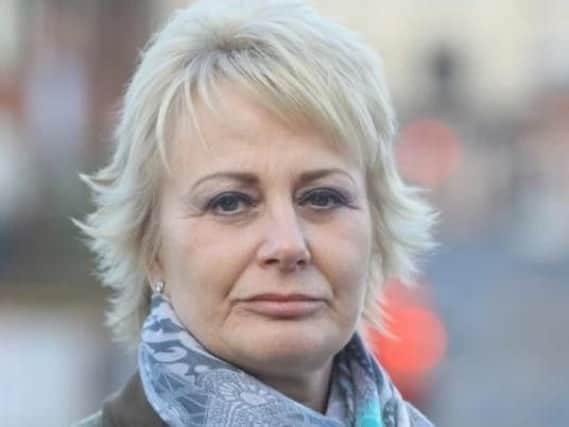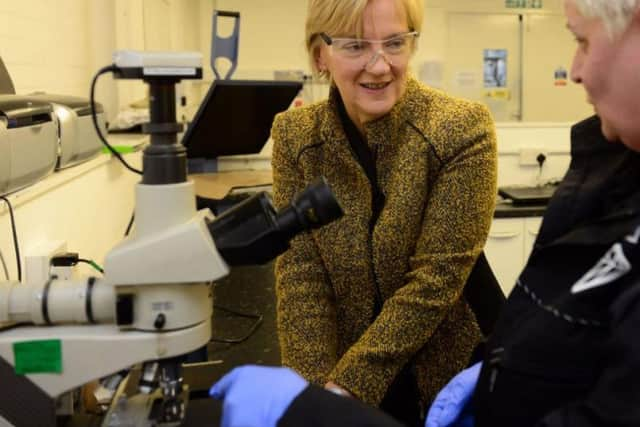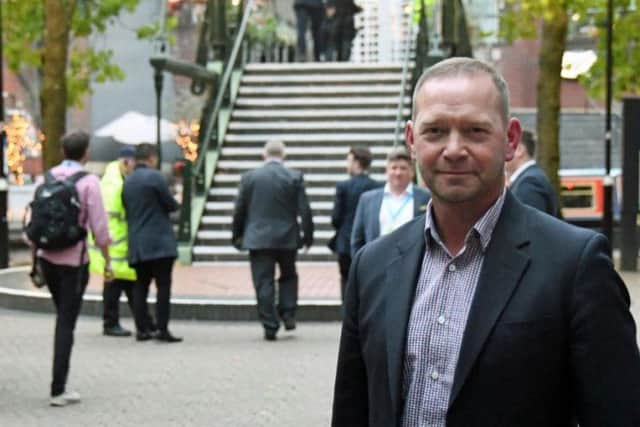Yorkshire MEPs Linda McAvan and Jane Collins won't stand in May's European Parliament elections


Labour’s Linda McAvan and Ukip’s Jane Collins will not put themselves forward for re-election on May 23 after a combined 26 years representing the region in Brussels and Strasbourg.
The UK looks set to hold elections for MEPs, sparking anger among Brexiteers, after European leaders this week gave Theresa May until October 31 to get her deal passed by the Commons.
Advertisement
Hide AdAdvertisement
Hide AdThey will only be cancelled if the controversial Withdrawal Agreement can be ratified by May 22. Talks continued between the Government and Labour yesterday to find a compromise that can get the support of MPs.
Party leaders have this week been rushing to make arrangements for the elections by pulling together lists of candidates ahead of the April 24 deadline and hastily drawing up their manifestos.
Of the six incumbent Yorkshire and the Humber MEPs, two say they will not stand again next month while three others, Conservative John Procter, Labour’s Richard Corbett and Ukip’s Mike Hookem, say they will stand. Tory Amjad Bashir did not respond to a request for comment by The Yorkshire Post.
Advertisement
Hide AdAdvertisement
Hide AdMs Collins, who was elected in 2014, said in a statement: “I’ve been in Ukip and politics nearly 20 years, eventually becoming an MEP. I don’t feel I’ve wasted my time but I haven’t been as effective as an MEP as I thought I could have been, not because of lack of effort but because of the system within the EU and how it functions. Hopefully the UK will be out before October.”


Mrs McAvan, who has served as an MEP since 1998, said in an online post that she was “sorry that my term in office ends with this damaging Brexit controversy”.
Separately, former Ukip leader Nigel Farage has vowed to put the “fear of God” into MPs as he announced the sister of Tory Brexiteer Jacob Rees-Mogg is to be one of 70 candidates fielded by his new Brexit Party in the elections.
EU elections 'unlikely to be cancelled'
The UK will likely be forced to take part in the European Parliament elections next month even if MPs approve Theresa May’s Brexit deal in the coming weeks, according to two of Yorkshire’s representatives in Brussels.
Advertisement
Hide AdAdvertisement
Hide Ad

Despite three failed attempts, No 10 officials still hope they can get the Prime Minister’s Withdrawal Agreement through Parliament in time to avoid the need for Britain to vote in elections to the European Parliament.
The country is now formally on track to hold elections, having informed the European authorities ahead of yesterday’s deadline that it would be taking part in the ballots occurring across the continent from May 23-26.
And two of Yorkshire’s six MEPs, Labour’s Richard Corbett and Conservative John Procter, say there is now little chance of the UK’s participation in the elections being cancelled.
Advertisement
Hide AdAdvertisement
Hide AdMr Procter, an MEP since 2016, told The Yorkshire Post: “This idea that we will stop the election half-way through if we do a deal, I don’t think that will happen for one single moment.
“Parties will have put down their deposits to take part in these elections, literature will be produced. Can you imagine if half-way through they said ‘we are out, we don’t need to continue’. The Government would face claims from political parties who had paid for literature.
“It is frankly a farce that we are even having them. I have always been a believer that the PM would get a deal and I am stunned that has not occurred as yet.
“I don’t think many people in politics relish the idea of these elections and goodness knows what the British people will make of them.
Advertisement
Hide AdAdvertisement
Hide Ad“For my part I have said I will be willing to stand in these elections. I think it is important that in our hopefully last remaining few months of being members of the EU that we have experienced voices representing the UK. I think they need to be responsible voices as well.”
Mr Corbett said that while the UK holding European elections previously looked “pretty unlikely”, it was now “almost certain”.
He said that even if the Withdrawal Agreement pulled together by Mrs May and European leaders was passed by the Commons in the coming weeks, it would be difficult for Parliament to pass all the necessary legislation in the time required.
On the prospect of only being elected as an MEP for a few weeks, he said: “However long you are there for your job is to defend your corner with the EU and make sure Parliament keeps voting on legislation that is sensible and beneficial, not bad legislation. Even if we left these apply to us for a long time. At the moment it is possible we will be there for five years.”
Advertisement
Hide AdAdvertisement
Hide AdMr Corbett added: “There is a lot of nonsense that people are angry there are elections. But elections offer people an opportunity to vote and express their views.
“There are a lot of parties with different views they can choose from. If people don’t want to vote they don’t have to vote. Given the high profile of European issues I think there will be a high turn-out and that is fine.”
Votes take place across the continent
Political parties can field up to six candidates in the region for the European Parliament, ranked from first to last.
Six MEPs from Yorkshire and the Humber are ultimately sent to represent the UK in Brussels and Strasbourg, with the number from each party based on the proportion of the total vote they receive.
Advertisement
Hide AdAdvertisement
Hide AdThere are 751 MEPs elected and each country has a different number of seats depending on its population. The UK has 73 seats.
UK voters will find that the MEP candidates on their ballot cards are affiliated with familiar national parties or they might be independent. But once elected, most of them opt to become part of transnational political groups that have roughly the same values as their initial party.